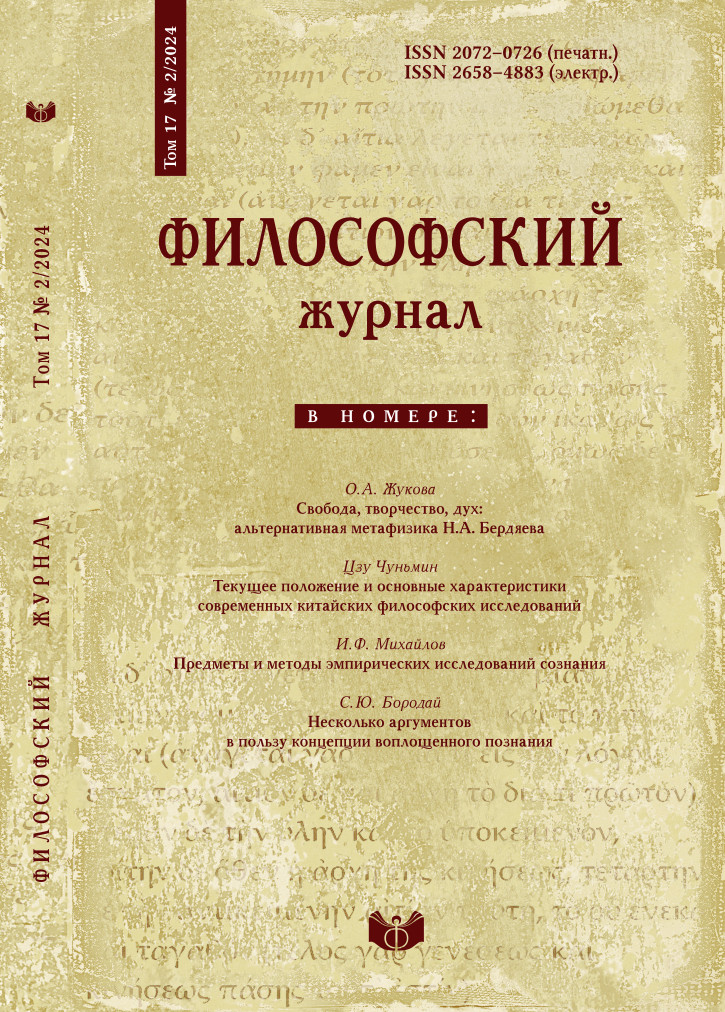The science of consciousness: in search of a paradigm?
DOI:
https://doi.org/10.21146/2072-0726-2024-17-2-153-167Keywords:
science of consciousness, cognitive sciences, pluralism, monism, philosophy of scienceAbstract
This article considers some important methodological questions related to the development of modern science of consciousness: the question of a search for a grand unified theory, determining an optimal explanatory strategy, virtues of computational theories of consciousness. The author draws on the fact of close interaction between the modern consciousness studies and cognitive sciences. Linking the idea of a grand unified theory to the image of paradigm elaborated by Kuhn, the author argues against theoretical monism in both the cognitive sciences and the science of consciousness. It is further argued that choice of an optimal explanatory strategy in both the cognitive sciences and consciousness studies should be determined by the character of the subject matter itself. While in the case of the cognitive sciences the evidence speaks in favor of explanatory pluralism, the science of consciousness may indeed require a unified explanatory strategy. It is asserted that in the absence of breakthroughs in predicting novel empirical phenomena or unintended explanations of known facts, etc., the criterion of empirical adequacy should play the key role in theory assessment. Thus, currently, computational and other theories of consciousness should be primarily judged by their empirical adequacy and not by their potential falsifiability. The latter should be understood as a methodological regulative principle, but not as a panacea for improving theories or a demarcation criterion.






